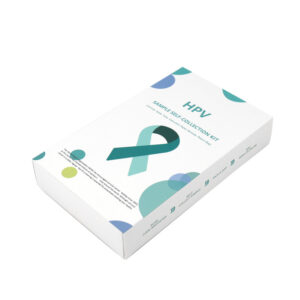생식력에 대한 HPV의 영향: 당신이 알아야 할 것
2023-08-16
인유두종 바이러스 (HPV) 남성과 여성 모두에게 영향을 미치는 흔한 성병입니다.. 대부분의 HPV 감염은 아무런 증상도 일으키지 않고 저절로 낫습니다., 특정 고위험 균주는 다양한 건강상의 합병증을 유발할 수 있습니다., 출산율에 대한 잠재적 영향 포함. 이 기사에서, 우리는 HPV와 생식력의 관계를 탐구할 것입니다, including its effects on both men and women, the potential risks during pregnancy, and available preventive measures.

HPV and Female Fertility
1. 자궁경부 건강: HPV infection can lead to abnormal cell changes in the cervix, increasing the risk of cervical cancer. 일부 경우에, treatments for cervical dysplasia or cancer may affect fertility, such as cervical conization or hysterectomy.
2. Pelvic Inflammatory Disease (PID): HPV infection, especially when combined with other sexually transmitted infections, can lead to PID. PID can cause scarring and damage to the fallopian tubes, potentially leading to infertility or ectopic pregnancies.
3. Assisted Reproductive Technologies (ART): Women with HPV may face challenges during in vitro fertilization (IVF) procedures due to the potential impact of the virus on the quality of embryos or implantation success.
2. HPV and Male Fertility
1. Sperm Quality: Studies suggest that HPV infection can affect sperm motility, morphology, and DNA integrity, potentially reducing male fertility.
2. Transmission to Partners: Men with HPV can transmit the virus to their female partners, increasing the risk of cervical abnormalities and potential fertility issues.
3. Assisted Reproductive Technologies (ART): Similar to women, men with HPV may experience reduced success rates during assisted reproductive procedures, including intrauterine insemination (IUI) and IVF.
HPV and Pregnancy
1. Vertical Transmission: HPV can be transmitted from an infected mother to her baby during childbirth. While most cases do not result in complications, certain high-risk HPV strains can cause respiratory papillomatosis in infants.
2. Pregnancy Complications: Some studies suggest a potential link between HPV infection and an increased risk of preterm birth, premature rupture of membranes, and low birth weight. 하지만, further research is needed to establish a definitive association.
3. Prevention: Vaccination against HPV before pregnancy can significantly reduce the risk of transmission to the baby and potential pregnancy complications.
예방 조치
1. 백신 접종: HPV vaccines, such as Gardasil and Cervarix, are highly effective in preventing infection with the most common high-risk HPV strains. Vaccination is recommended for both males and females before becoming sexually active.
2. Safe Sexual Practices: Consistent condom use and limiting the number of sexual partners can reduce the risk of HPV transmission.
3. 정기검진: Routine Pap smears and HPV testing for women, as well as regular check-ups for men, can help detect and manage HPV-related abnormalities early on.

While HPV infection can pose potential risks to fertility and pregnancy, it is essential to remember that most HPV infections do not lead to severe complications. 정기 상영, safe sexual practices, and HPV vaccination can significantly reduce the risk of transmission and related fertility issues. Consultation with healthcare professionals is crucial for individuals seeking guidance on managing HPV and ensuring optimal reproductive health.
















